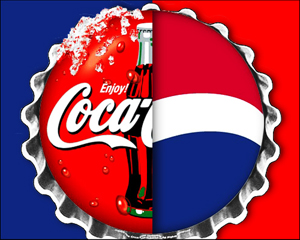Carbonated sodas are finding themselves unwelcome in more and more places than ever before. Most recently, the Faulkton, South Dakota school district has banned soda to be sold inside or brought in the school. This is one of the first complete instituted bans on soda in the country. As this trend continues, soda companies are attempting to make up for the loss of sales.
Many schools have been removing soda and sugary drinks from vending machines in the last few years. It is assumed more total bans will take place as soda is being named public enemy number one by many health organizations. The link between the obesity crisis and sugary drinks seems fair as Americans drink nearly two sodas a day on average. Those two sodas add up to nearly 25 pounds of sugar a year. That sugar equals a plethora of issues for the human body, including weight gain. Margo Wootan, director of nutrition policy at the Center for Science in the Public Interest describes how prolific the consumption of soda is in America.
“We get more calories from sodas and sugary drinks than any other individual food — cake, cookies, pizza, anything.”
This attack on soda is causing stress for the top brands in the business. Coke and Pepsi admit they are relying more heavily on their “flat” drinks to carry them currently. The push of bottled waters and non-carbonated drinks combined with price increases on sugar sodas have been keeping soda companies successful, for now at least.
Other actions being taken by the soda companies is to emphasize their “fortified” beverages. While these “fortified” drinks may not be soda, the sugar content tends to be just as high and it often simply means more salt has been added to the mix. All the more reason to read labels and know what is being consumed.
In addition to promoting fortified drinks, beverage companies are fiddling with formulas to lower calories without changing the taste of the full sugar blends. This has brought about the introductions of mid-range calorie drinks like Pepsi Next and Coke’s slimmed down Sprite and Fanta. Dr. Pepper has introduced a 10 calorie version that is anticipated to appeal to those who dislike the diet flavor. Even 7-Eleven’s Slurpee Lite has half the calories as before, thanks to artificial sweetener Splenda.
Until an all-natural sweetener with no calories is discovered, experts believe the health and wellness trend will eventually take down the soda companies and they’d be wise to start selling strong, healthier, options now. Sandy Douglas is the president of Coca-Cola North America, even he recognizes the impact the current health course is having. “The health and wellness trend is huge, permanent and important.”
image via http://guijarrodesign.com/
